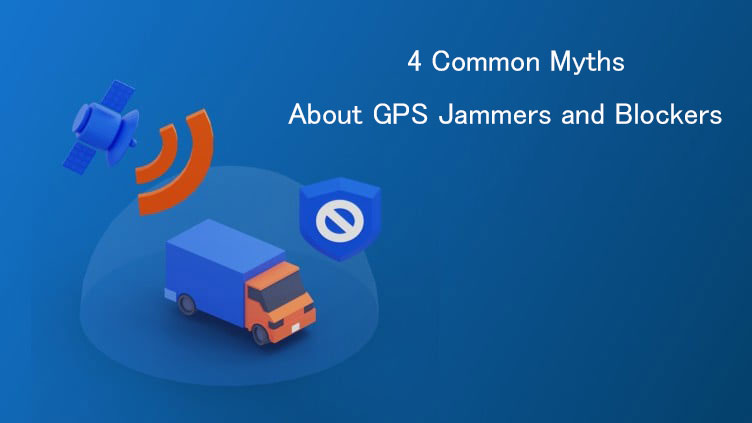Managing a field service business presents its own unique set of challenges.
Ensuring driver safety, cutting fuel costs, ensuring timely deliveries, and asset tracking are some of the primary concerns for most managers.
While GPS-based trackers help field service managers improve road efficiency, the technology can still be tampered with.
For instance, pilots losing air navigation signals, ships reporting incorrect locations, and delivery drivers avoiding toll booths all have one thing in common: a GPS jammer disrupting or blocking GPS signals.
What is GPS Jamming?
First, let’s understand GPS and how GPS tracking operates. Managed by the US Air Force, GPS is a radio navigation system that relies on the Global Navigation Satellite System (GNSS) network, utilizing time data sent by numerous satellites in space equipped with atomic clocks. Each satellite transmits signals that GPS receivers on Earth use to determine their locations.
While occasional satellite malfunctions can disrupt these signals, a more deliberate cause is GPS jamming. A GPS jammer plugs into a vehicle’s cigarette lighter port and broadcasts noise on the same frequency used by satellites. As a result, GPS receivers cannot receive the satellite signals. Depending on the jammer’s strength, it can disrupt GPS reception for several miles or meters.
Myths About GPS Jammers
Many field service representatives are aware of the regulations and penalties associated with using a GPS jamming device to alter their location or driving log. However, some drivers and representatives use GPS jammers innocently, simply to avoid being tracked by their managers. These actions can have significant consequences.
Here are four common myths that are simply not true.
Using a GPS jammer is exclusive to wealthy criminals.
Fact: This is far from the truth. GPS is integral to our daily lives, with new vehicles and mobile devices equipped with GPS capabilities. GPS signal jammers are so common that they can be found on eBay for under $50. The worst part is that anyone can purchase and install these jammers, putting their GPS-based navigation systems (like those in an iPhone) at risk. For example, if you’re using Google Maps to find a destination, interference from a GPS jammer could lead you astray or shut down the app entirely. The ease of use of GPS jammers amplifies their potential danger.
Let’s first understand what GPS is and how GPS tracking works. Managed by the U.S. Air Force, GPS is a radio navigation system that uses the Global Navigation Satellite System (GNSS) network, utilizing time data sent by numerous satellites in space equipped with atomic clocks. Each satellite transmits signals that GPS receivers on Earth use to determine their locations.
While occasional satellite malfunctions can disrupt these signals, a more deliberate cause is GPS jamming. A GPS jammer plugs into a vehicle’s cigarette lighter port and broadcasts noise on the same frequency used by satellites. As a result, GPS receivers cannot receive the satellite signals. Depending on the jammer’s strength, it can disrupt GPS reception for several miles or meters.
Using a GPS jammer will make my current location invisible.
Fact: If field service representatives use GPS jammers to tamper with their location data and block GPS tracking, managers will notice. Drivers might believe that jammers will make them invisible, but in reality, their deceptive actions on the road will attract more attention.
For example, if a driver uses a mobile route planning app and tries to avoid GPS tracking with a jammer, the vehicle won’t vanish; it will still appear on the live map as a missed trip. Additionally, when drivers plug their jammers into a cigarette lighter port while driving, you will see a line indicating when the jamming started.
To detect GPS jammers in your vehicles, you can set up an exception rule in your mobile GPS navigation app. This rule will scan for GPS signal faults and send an alert if interference is detected.
If my vehicle’s location doesn’t show up correctly on the map, will my manager think I’m using a GPS jammer?
Fact: No. An interrupted signal doesn’t automatically mean you’re using a GPS jammer. While GPS signals are generally reliable regardless of weather, accuracy can be affected in areas without a clear line of sight to the sky, such as crowded areas, tunnels, or under bridges. According to the GPS.gov website, GPS trackers are typically accurate within 16 feet 95% of the time under normal conditions. Additionally, many route planner and route optimization apps come with built-in GPS tracking.
Limited Effectiveness (So, not threatening)
Reality: Many believe GPS jammers only block signals within a limited range. However, they can actually disrupt GPS signals over a large area, significantly impacting various navigational and logistics services.
These myths about GPS jammers have now been thoroughly debunked. Next time you encounter suspicious signal blocks or inaccurate navigation data, you’ll know the real cause!

